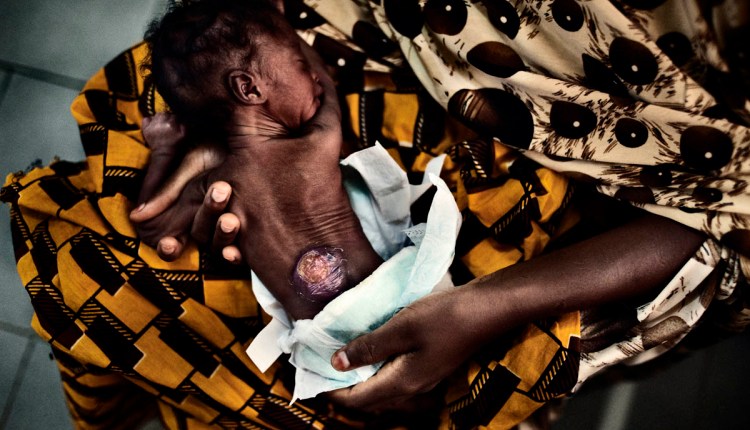There are no products in your shopping cart.
| 0 Items | £0.00 |


HEALTH watchdog the United Nations Children’s Fund (Unicef) has warned that as many as 950 children may die daily across Nigeria from preventable causes over the next six months as the coronavirus pandemic overwhelms the health service.
For now, the Covid-19 pandemic has only affected 4,971 people in Nigeria, of which there have been 164 fatalities but there are fears that the numbers could increase in the not-too-distant future. Unicef has now sounded an additional warning that things could get even worse as dealing with the pandemic could disrupts routine medical services and threaten to weaken the health system further.
Nigeria has a very poor health service as hospitals and clinics in her 36 states are poorly equipped, under-staffed and lack even basic equipment such as beds and mattresses. Will all the country's efforts directed at preventing the spread of Covid-19, Unicef has warned that other ailments particularly child and maternal mortality could get neglected and lead to a lot of deaths.
Even before the coronavirus pandemic came about, Nigeria had one of the highest maternal mortality rates in the world with 917 deaths in every 100,000 deaths. Unicef fears that this figure could grow with around 6,800 more maternal deaths occurring within just six months due to the neglect of the sector.
Unicef executive director Henrietta Fore, said: “The estimate is based on an analysis by researchers from Johns Hopkins Bloomberg School of Public Health, newly published in The Lancet Global Health journal. These disruptions could result in potentially devastating increases in maternal and child deaths."
According to Unicef, the analysis offers three scenarios of the potential impact of Covid-19 in 118 low- and middle-income countries, including Nigeria. In the worst-case scenario, the estimate is that an additional nearly 173,000 under-five deaths could occur in just six months, due to reductions in routine health service coverage levels, including routine vaccinations and an increase in child wasting.
Ms Fore added: "In Nigeria, these potential child deaths would be in addition to the 475,200 children who already die before their fifth birthday every six months, threatening to reverse a decade of progress in ending preventable under-five child mortality in Nigeria. About 6,800 more Nigerian maternal deaths could also occur in just six months.
"Under a worst-case scenario, the global number of children dying before their fifth birthdays could increase for the first time in decades. We must not let mothers and children become collateral damage in the fight against the virus."
Peter Hawkins, Unicef's Nigeria country representative, added: “We have made steady progress in reducing preventable child and maternal deaths in Nigeria over the last 20 years and it would be devastating if that progress is lost or reversed. It would be devastating for Nigerian families, communities and for the country as a whole.
“The under-five mortality rate has declined gradually over the last two decades in Nigeria from 213 deaths per thousand in 1990 to 120 today. This is likely due to improved access and coverage of key lifesaving interventions at primary health care and community levels and improved immunization rates but in countries with still overall weak health systems, like Nigeria, Covid-19 is causing disruptions in medical supply chains and straining financial and human resources.
"Visits to health care centres are declining due to lockdowns, curfews and transport disruptions and as communities remain fearful of infection. The estimates in this new study show that if, for whatever reason, routine health care is disrupted, the rise in child and maternal deaths will be devastating.”